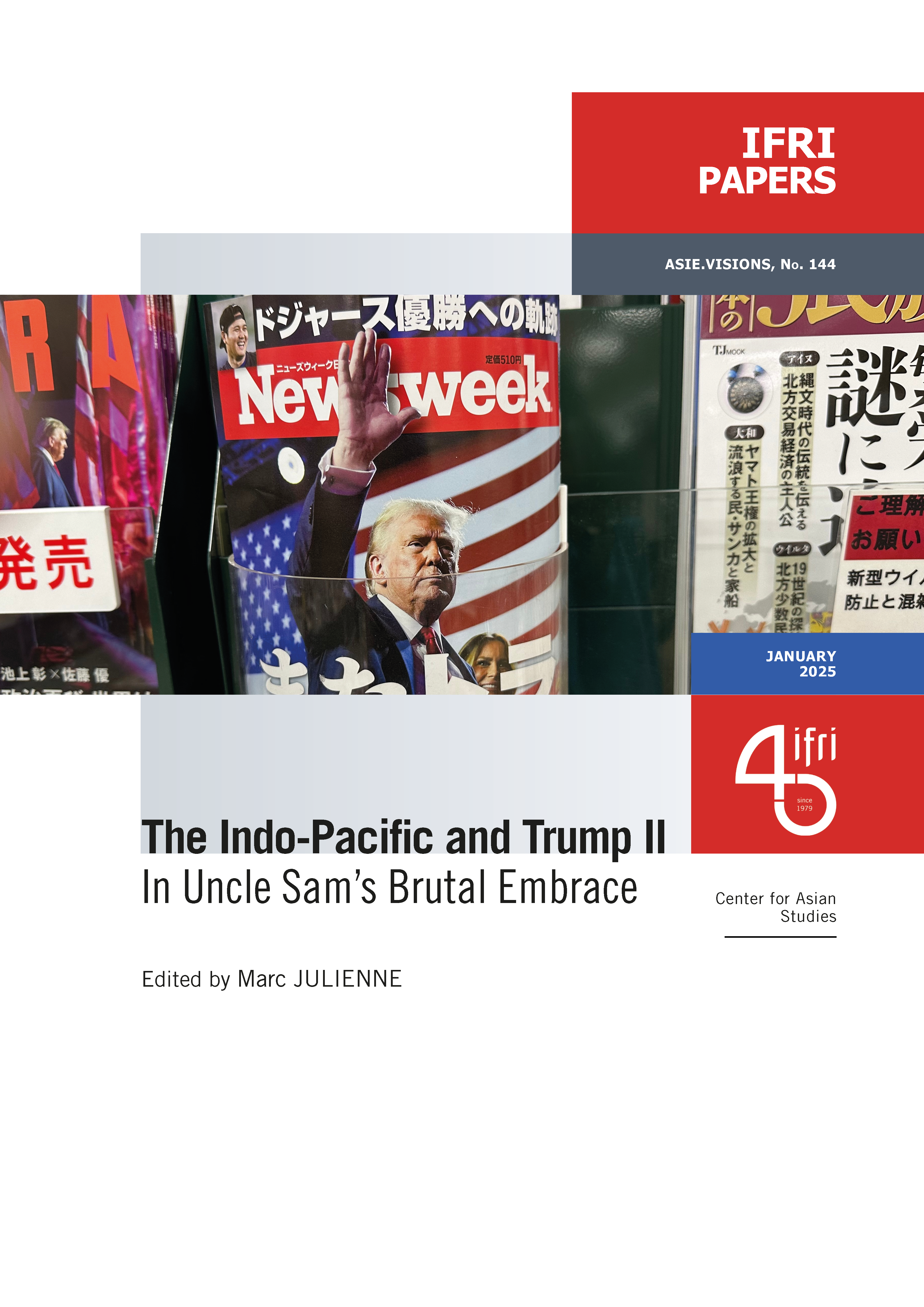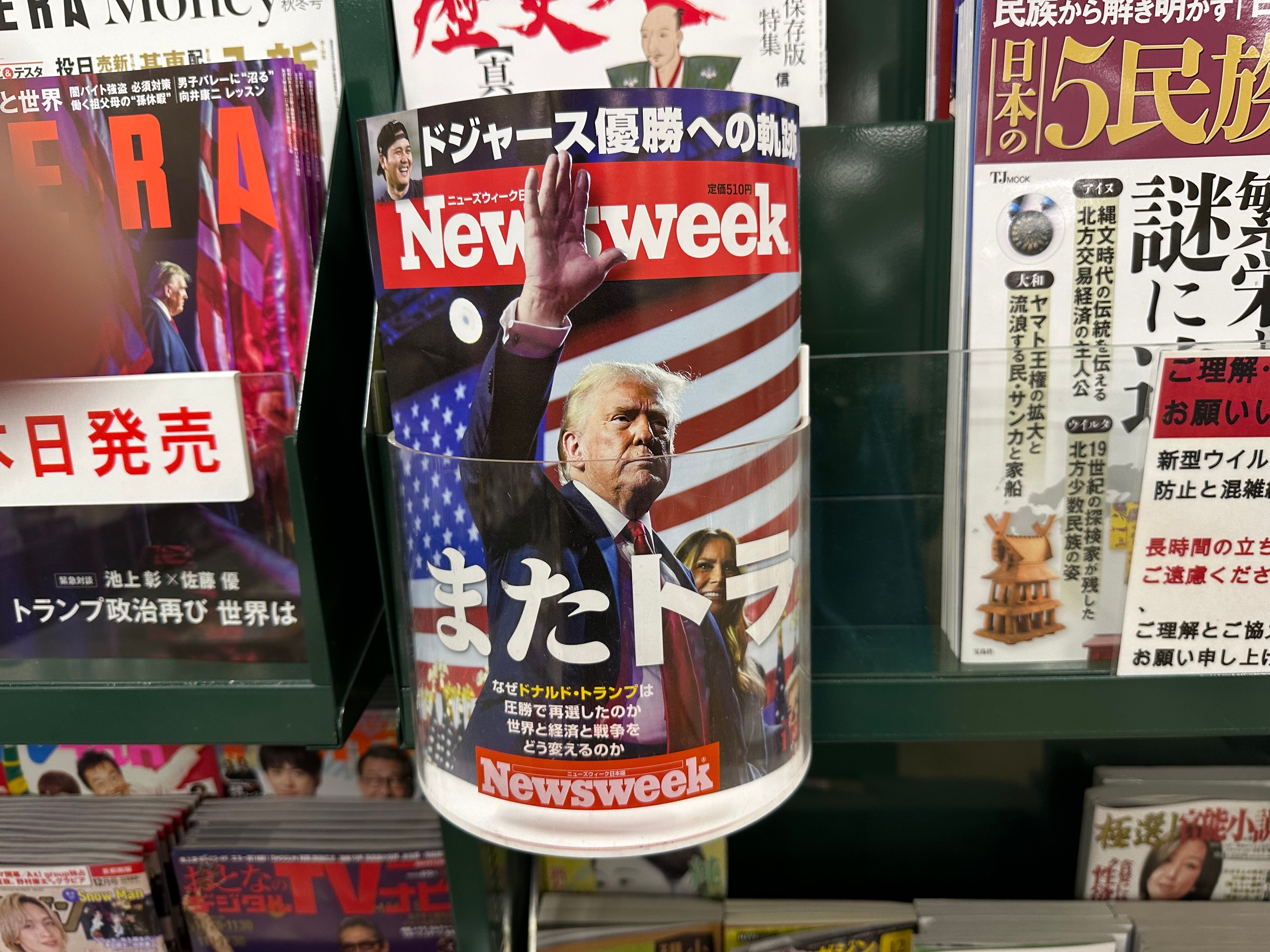The Indo-Pacific and Trump II. In Uncle Sam’s brutal embrace

In this collective analysis, the research team of the Center for Asian Studies presents a synthetic and non-exhaustive assessment of the relations taking shape between the United States under the Trump II administration and some of the main players in the Indo-Pacific.

Under the Trump II administration, US strategy in the Indo-Pacific is likely to be part of a bipartisan continuum, marked by strategic competition with China. The emphasis will be on economic pressure, notably via new trade sanctions, and increased military and technological engagement to counter Beijing. Washington’s allies and partners in the region, such as Taiwan, Japan, South Korea, the Philippines and Australia, will continue to be mobilized to strengthen their posture against China, while pressure to increase their military spending and purchase US armaments will continue.
However, external factors such as political instability in South Korea and rising tensions in the Taiwan Strait could complicate the implementation of this strategy. In Southeast Asia, the delicate balance between economic dependence on China and security provided by the United States remains a major line of tension.
In sum, the Trump II administration is likely to pursue a determined, sometimes brutal, policy of engagement with its partners in the Indo-Pacific, while stepping up pressure on Beijing and adapting its priorities to emerging geopolitical challenges.

Available in:
Themes and regions
ISBN / ISSN
Share
Download the full analysis
This page contains only a summary of our work. If you would like to have access to all the information from our research on the subject, you can download the full version in PDF format.
The Indo-Pacific and Trump II. In Uncle Sam’s brutal embrace
Related centers and programs
Discover our other research centers and programsFind out more
Discover all our analysesJapan’s Takaichi Landslide: A New Face of Power
Prime Minister Sanae Takaichi has turned her exceptional popularity into a historic political victory. The snap elections of February 8 delivered an overwhelming majority for the Liberal Democratic Party (LDP), driven by strong support from young voters, drawn to her iconoclastic and dynamic image, and from conservative voters reassured by her vision of national assertiveness. This popularity lays the foundation for an ambitious strategy on both the domestic and international fronts.
The U.S. Policy Toward Taiwan Beyond Donald Trump: Mapping the American Stakeholders of U.S.-Taiwan Relations
Donald Trump’s return to the White House reintroduced acute uncertainty into the security commitment of the United States (U.S.) to Taiwan. Unlike President Joe Biden, who repeatedly stated the determination to defend Taiwan, President Trump refrains from commenting on the hypothetical U.S. response in the context of a cross-Strait crisis.

China’s Strategy Toward Pacific Island countries: Countering Taiwan and Western Influence
Over the past decade, China has deployed a diplomatic strategy toward the Pacific Island Countries (PICs). This strategy pursues two main objectives: countering Taiwan's diplomatic influence in the region and countering the influence of liberal democracies in what Beijing refers to as the "Global South."

Opening up the G7 to South Korea to Address Contemporary Global Challenges
The G7’s global influence has diminished as powers like China reshape international governance through initiatives such as BRICS and the Shanghai Cooperation Organisation (SCO). With the G7 now representing just 10 per cent of the world’s population and 28 per cent of global GDP, its relevance is increasingly questioned.

























